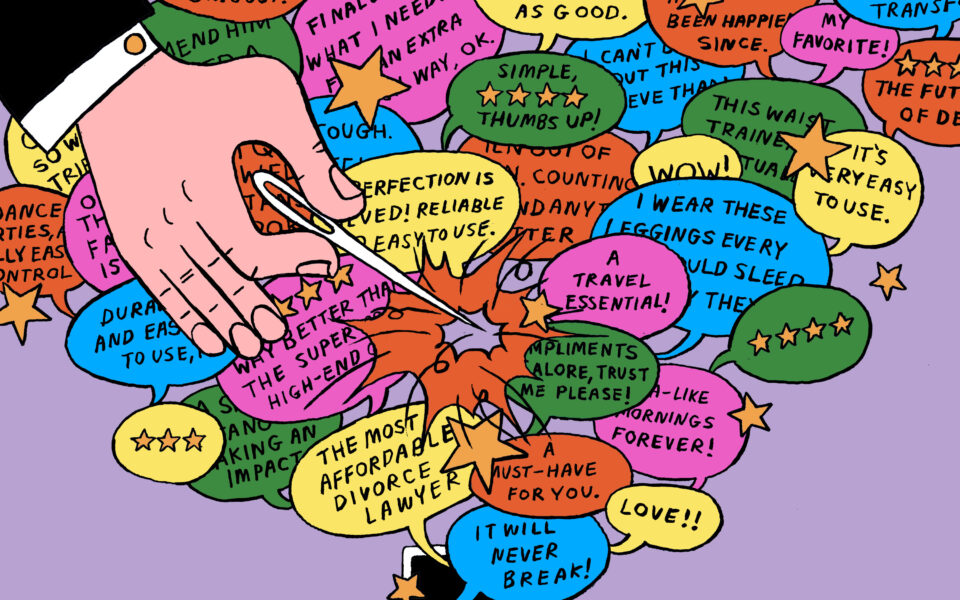Fake reviews are rampant online. Can a crackdown end them?

After Dr Mark Mohrmann completed a successful orthopedic procedure in 2019, his patient turned to Yelp, a review website, to share his appreciation.
“Dr Mark made me feel that I was in safe hands,” the patient wrote in a five-star review.
Only the writer was not an actual patient, and there was no procedure. His review was fake – part of an effort to boost the online ratings for Mohrmann’s business using phony positive reviews, according to an analysis by Fake Review Watch, an industry watchdog. Last month, Mohrmann agreed to pay a $100,000 penalty to settle with New York’s attorney general on charges of deceiving the public with fake reviews.
The fake review for Mohrmann is just one example of the billion-dollar fake review industry, where people and businesses pay marketers to post fake positive reviews to Google Maps, Amazon, Yelp and other platforms, and deceive millions of customers each year.
Fake reviews are as old as the internet itself, and they are illegal and banned by online platforms. But fake-review businesses have continued to blossom anyway.
Now, for the first time, a wave of regulation and moves by tech companies are coalescing in a more concerted effort to turn the tide.
This summer, the Federal Trade Commission proposed a sweeping new rule that would punish businesses for buying or selling fake reviews, among other restrictions. In October, several online platforms, including Amazon and Expedia, announced a coalition that would share information and resources among companies to combat review fraud. And late last month, New York Attorney General Letitia James issued her own warning across the state, saying in a statement that fake reviews were “illegal and unacceptable.”
Experts warned, however, that the fake-review problem may be so enormous that it is insurmountable, and they note that fake reviewers have survived previous crackdowns.
Jason Brown, founder of Review Fraud, a consumer advocacy website that has exposed businesses using fake reviews, said platforms had not done enough to manage the problem, but he acknowledged that concern from regulators and companies was swelling.
“Everyone is feeling the heat and pressure,” he said. “Time will tell.”
Almost all fake reviews are positive endorsements, such as four-star and five-star reviews, that the businesses write themselves or are created by digital marketers, whose services can be purchased online for as little as a few dollars per review.
This article originally appeared in The New York Times.






